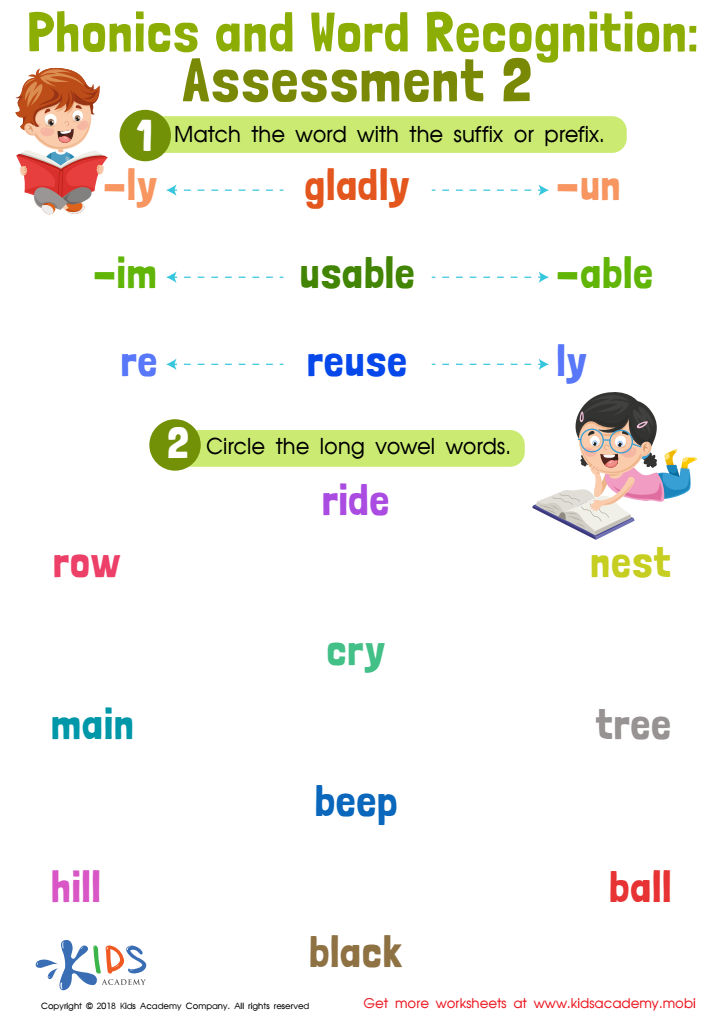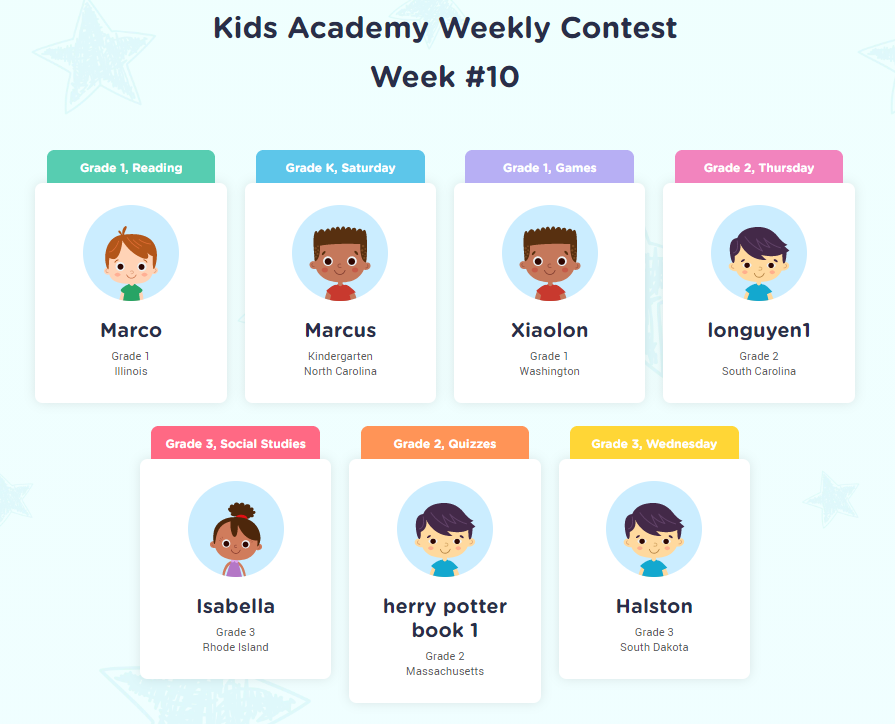Alphabet worksheets activities for Ages 7-8
7 filtered results
-
From - To


Let's Check Long Vowels: Assessment Worksheet


Phonics and Word Recognition: Assessment 3 Worksheet


Phonics and Word Recognition: Assessment 1 Worksheet


Long and Short Vowel Sentences: Assessment Worksheet


Phonics and Word Recognition: Assessment 1 Worksheet


Phonics and Word Recognition: Assessment 2 Worksheet


Phonics and Word Recognition: Assessment 2
Alphabet worksheets activities are an invaluable tool in early education, offering an interactive and engaging approach to learning the basics of reading and writing. These activities are designed with children in mind, providing a structured yet flexible framework that caters to individual learning paces. Alphabet worksheets are particularly useful for several reasons, making them a staple in both classroom settings and home education.
Firstly, alphabet worksheets activities develop recognition skills. Children learn to identify each letter, distinguishing between their shapes and sounds. This foundational skill is crucial as it sets the stage for reading and spelling. Through repetitive practice and engaging worksheet tasks, children become familiar with the alphabet, which is essential for their literacy development.
Secondly, these activities enhance fine motor skills. As children trace letters, color them in, or complete letter-matching exercises, they are not just learning about the alphabet but also improving their hand-eye coordination and pencil grip. These fine motor skills are critical for writing, and early practice can facilitate smoother transitions to more complex writing tasks.
Furthermore, alphabet worksheets activities foster cognitive development. Through solving puzzles, completing letter sequences, or matching letters to pictures, children enhance their problem-solving skills, memory, and ability to think critically. These cognitive skills are not only useful in learning to read and write but are applicable in various learning contexts throughout a child’s education.
Lastly, the versatility of alphabet worksheets allows for personalized learning experiences. Whether a child is a visual, auditory, or kinesthetic learner, worksheets can be modified to suit different learning styles. This flexibility ensures that every child can engage with the material in a way that best supports their individual learning journey.
In conclusion, alphabet worksheets activities are a powerful tool in the early educational landscape. They lay a strong foundation for literacy, support the development of fine motor and cognitive skills, and cater to diverse learning needs, making them an essential component of effective learning strategies.
 Assign to the classroom
Assign to the classroom











